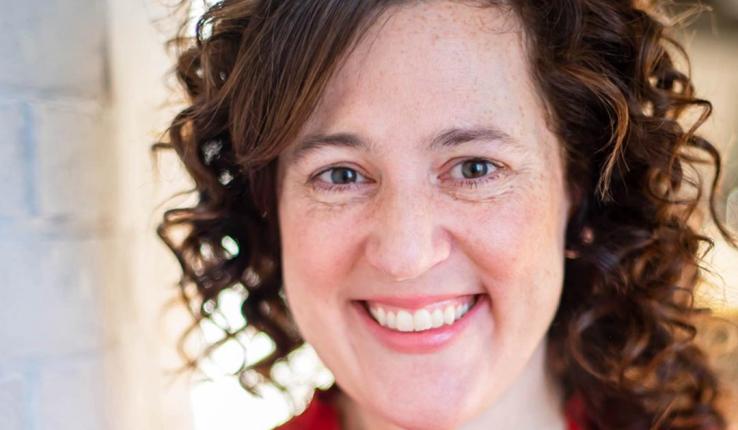COE researchers awarded $3.1 million in education grants

"Our College of Education has been very successful in attracting federal funding to develop the research that will then result in knowledge that has a positive impact on our nation's children," said Gary Sasso, dean of the College of Education.
Researchers in the College of Education have been awarded a total of $3.1 million in grants from the U.S. Department of Education’s Institute of Education Sciences to develop programs and monitoring tools to help preschool and elementary school children in language, behavior and literacy.
L. Brook Sawyer, assistant professor of teaching, learning and technology, received a three-year, $1.5 million grant to develop and assess the promise of Parents Plus: Language Coach. The online tool, coupled with individual coaching, aims to educate parents of preschool children with language impairments about techniques to promote their children’s language skills.
Lee Kern, professor of special education, received a three-year, $1.5 million grant to adapt Tier 2 behavior interventions for elementary school children. Along with researchers from Vanderbilt University, Kern aims to develop a framework to more easily identify and modify interventions that help children with mild to moderate behavior problems.
Also, Robin Hojnoski, associate professor of school psychology, was awarded $134,615 in IES funding to help develop measures to monitor progress in early literacy among preschoolers. The University of Minnesota will lead the four-year study, which will be conducted in three geographic locations.
"Our College of Education has been very successful in attracting federal funding to develop the research that will then result in knowledge that has a positive impact on our nation's children," said Gary Sasso, dean of the College of Education.
Earlier this year, Sasso emphasized the importance of IES funding in a written pitch to Congress to increase the federal agency’s funding, as requested by the Obama administration. Sasso said the additional funding would enable the IES to award $55.5 million in new research and development grants in the areas of early learning; elementary, secondary, postsecondary and adult education; and issues related to students with disabilities. Sasso also lauded Bill D. Michalerya, associate vice president of government relations and economic development at Lehigh, who he said has been instrumental in bringing the funding issue to the attention of Congress.
To underscore the importance of the funding, Sasso said IES grants have allowed COE faculty to conduct research and develop programs in several areas: teacher training in STEM (Science, Technology, Engineering and Math); screenings for children at risk in urban educational settings; interventions for young children and adolescents with ADHD (Attention Deficit Hyperactivity Disorder); early literacy and language growth, and others.
Across the country, he said, schools and clinics have developed programs based on COE research. In addition, COE faculty and staff have made more than 150 presentations at national conferences designed to provide cutting-edge, best-practice programs in schools, clinics and homes.
Parents Plus training course
Sawyer, in her research, will work with colleagues from Teachers College, Temple University and the Oregon Research Institute to develop the web-based Parents Plus training course.
“It’s imperative that we promote young children’s language skills early so that they can have optimal success in reading and academics as they enter elementary school,” said Sawyer. “And right now, parents of preschoolers often don’t have sufficient or convenient enough means to learn evidence-based language facilitation techniques to help their children.”
Once the program is developed, a coach will work with parents to make sure they understand the strategies and how to use them. In the final year of the project, researchers will conduct a small randomized control trial to assess the effectiveness of the program.
Adapting Tier 2 interventions
Kern’s project, titled Adapting Tier 2 Interventions for Non-Responsive Students in Elementary Schools, will be conducted in elementary schools in the Lehigh Valley and the metropolitan area of Nashville, Tenn. Her team hopes to develop ways to systematically identify and modify Tier 2 interventions within the context of a multi-tiered system for behavior support.
In a tiered framework, students learn a school’s expectations for how to behave, with rewards for positive interactions and consequences for inappropriate behavior. Schools don’t assume that students know what will be expected of them, Kern said, so every student receives Tier 1 interventions.
Those who may need more instruction because they didn’t respond to basic school rules, rewards and consequences—about 10 to 15 percent of the school population—will receive Tier 2 interventions, she said. Then, under Tier 3, students with the most needs—about 2 to 5 percent of the school population—will get intensive, individualized supports to improve their behavior.
“There’s a big leap between Tier 2 and Tier 3 interventions,” said Kern. So, researchers will focus on ways to adapt those Tier 2 interventions to make them more effective, reduce problem behaviors and keep students from moving up so quickly to the next tier, she said. Researchers will look at whether this intervention model, which has been used successfully in the public health arena and which Kern believes holds a lot of promise in education, can be adapted for school use.
“The research is beginning to tell us that a lot of students are not responsive to Tier 2 and end up going into Tier 3,” Kern said. “And we’re very convinced they don’t need to get that intensive intervention, which is time consuming and costly and often doesn’t get done very well.”
Measuring literacy progress
Hojnoski, in addition to developing measures to monitor literacy progress among preschoolers, will seek to develop a way for teachers to use the assessment data.
“We don’t have a standard rate of growth for preschoolers in terms of their literacy and language development,” Hojnoski said. Researchers will assess children’s skills at specific intervals throughout the school year. And through surveys and classroom observations, researchers also will examine children’s learning environments at home and at school.
“The progress monitoring tools should, theoretically, help teachers to make instructional changes to support development in important domains,” said Hojnoski. “Without these kinds of tools, they’re not able to do that. Right now they’re going on best guess, teacher judgment, which is a good thing, but it’s nice to have actual data for kids.”
Hojnoski said the data could be useful at both an individual child level and an administrative level. For example, if students in one preschool class are making great progress and those in another are not, administrators can dig deeper. Does a teacher need more support, more resources?
“Part of what we hope will come out of this is some idea of a standard rate of growth for kids in these different skill areas, a tool that helps teachers to identify when children are not making sufficient progress and when they are making sufficient progress,” she said.
In one year of the study, researchers will follow children into kindergarten to determine if their performance in preschool was a predictor of how well they would perform in kindergarten.
Posted on:







